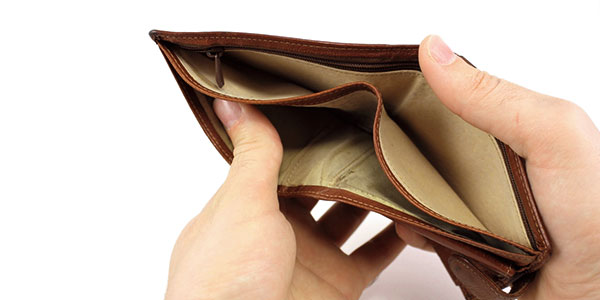Bankruptcy is like a fish net. You can use this net to catch all your creditors and then pay them off one by one. However, there are a few hard facts about bankruptcy that many people are unaware of. Although, I hope none of you have to file bankruptcy in 2016, yet it doesn’t hurt to know a few facts about filing bankruptcy.
A few unknown facts about filing bankruptcy
Here are a few hard facts about bankruptcy you would be shocked to know about:
1. Many people just can’t afford to file bankruptcy: A person files bankruptcy technically because he or she can’t fulfill his or her duty as a debtor. The person doesn’t have any money to repay bills. So, filing bankruptcy is a good way to start fresh financial life. But, the process of filing bankruptcy is expensive.
In 2012, a person had to spend $1500 to file Chapter 7 bankruptcy. The breakdown of the cost is like this:
- Attorney fees - $1100
- Pre-bankruptcy credit counseling - $85
- Forms - $300
The cost of filing Chapter 13 bankruptcy is even higher since the proceeding goes on for minimum 5 years.
2. Credit suffers a lot due to bankruptcy: Most people already know this fact that bankruptcy would affect their credit score. But, what they don’t know about is the magnitude of the impact.
Chapter 7 bankruptcy will glow on your credit report for 10 long years. Chapter 13 bankruptcy will shine on your credit report for 7 years after completing the process successfully. Moreover, the debts you’re going to pay off through bankruptcy will impact your credit score too. They will stay on your credit report for 7 years and 6 months as well.
A bankruptcy may drop your credit score by hundred points. You may have to wait for 4 years to obtain a mortgage. Even if you get approved, then you’ve to pay a very high interest on a mortgage. You’ll qualify for credit cards but with higher interest rates and lower credit limits till you rebuild credit. Again, you’ll qualify for auto loans. But for that, you need to pay 16.2 percent interest rate on a 48-month used-car loan. Any guy with a 720 credit score would have to pay only 3.6 percent interest rate for the same loan. And, that’s a huge difference.
3. You can’t say ‘goodbye’ to all your debts: Many people think that all their debts would be discharged through bankruptcy. But, this is a wrong concept. There are a few types of debts that are not dischargeable. This means you can’t get rid of them even through bankruptcy. You have to pay off those debts even after the bankruptcy proceedings are completed.
For example, child support, alimony, government fees and fines are nondischargeable. Attorney fees in case of child custody are also non-dischargeable. As far as student loans are concerned, they can be discharged through bankruptcy only under special cases.
Conclusion
It’s not a sin to file bankruptcy. Sometimes, our complicated financial problems compel us to knock the doors of the bankruptcy court. While we can’t do much to save our credit score, at least, we can be mentally prepared for the consequences beforehand. If you have decided to go ahead with bankruptcy, then find out what you’re going to lose and gain first. This might stop you from getting shocks later.
Don’t miss out - Fight financial hardship after bankruptcy with 11 witty tricks









